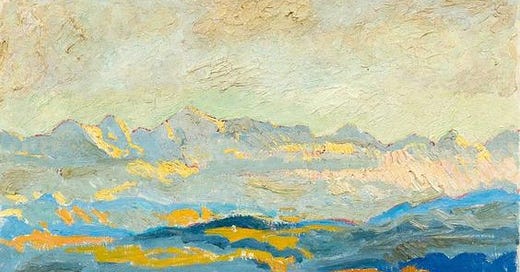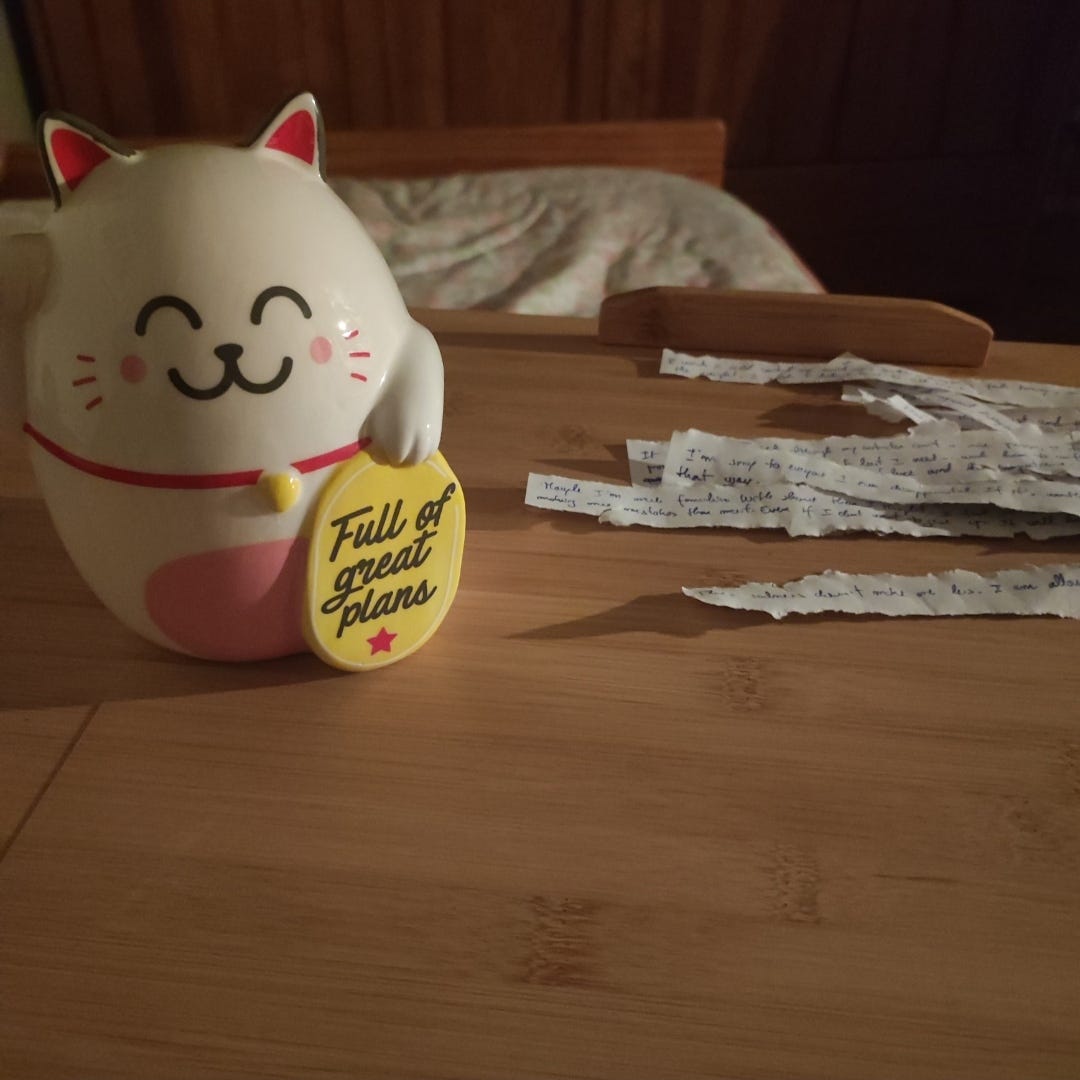There is a very particular sadness to my country. One musical genre deeply embedded in our culture, the Fado, is characterized by its heavy, sorrowful melodies, with lyrics of heartbreak or dread, the pain of the poor or lovesick. Nostalgia runs deep. When you start a conversation with a stranger around here, it won’t be surprising if it ends in angry outbursts, talks of misjustice, how tough the times are, how grim the future looks, how sweet the past tastes, or just how annoying the weather is in some sort of way: too cold, too hot, too rainy, too dry, too much pollen in the air; whatever shoe fits.
It’s a strange kind of fondness for anything melancholic. As if deep down we’re all actually enjoying this, as if this sadness is all there’s left, all we can hold on to, all we are as people. Which feels a bit pathetic, seeing our lives reduced to such misery. Gloomy, pitch black meanings; ironic, crude, sarcastic takes, and a jealousy so cutthroat I’ve read some authors describe it as suffocating. A Portuguese person won’t envy what you have, but will rather believe you underserving of your wealth, happiness or success, if they didn’t have it first. You have no right to it if they don’t. Why would you? We not only set everything on fire, we also throw the logs, the furniture, the bricks and the dreams we had. We want to feast over the ashes.
I think humanity is about loss. What connects us sometimes is what we’re missing, and what we find in each other. Loss of courage, of trust, of optimism; loss of confidence, of fear. The loss feeds itself, becomes twisted and beastly and sad. The way I see it, the people here have lost something, I just can’t tell exactly what.
But I’d like to talk about hope today, and its absence and odd existence. Hope has felt like swallowing a whole egg and getting it stuck down my throat. Throbbing, hurting, a will of its own. It isn’t always a steady, outstretched hand to hold as I sink, or a beam of sunlight finding my window, as I expected it to look like. If I look back, I’ve probably been more hopeless and then hopeful — always the good old pessimistic…
Hope doesn’t knock on my door very often, or, when it does, maybe I have my earbuds on; or the door is too thick, the stove is cooking, I’m on the toilet, you name it. I never let hope formally in, so it has to come through the window, or the pipes.
Emily Dickinson once said that “Hope is the thing with feathers that perches in the soul / and sings the tunes without the words / and never stops at all.”; amidst so much sorrow, all the loss is so loud, everything clashes together with such an intensity. It doesn’t only breath in the silence, but in the everyday noises. How can hope survive untouched? How do we manage to wake each day and move, like mountains, impassive and high, mighty? As I write this, violent rains flooded the city nearest to me in only 20 minutes. The currents of water partly destroyed a brick road, a subway station became a water park, the word of the night was probably ‘damage’. It is expected that tomorrow rains will be heavier.
It never stops. The noise, the damage, the loss. It sometimes feels as the only promise the world keeps to us. And I wonder if hope shouldn’t be the answer, the antidote. What calls upon hope to act? How do we lure it? How can I keep it? I get so easily overwhelmed, amidst the constant damage all around, eating us raw, I still haven’t figured out how hope blooms. What’s the formula, the soil, how much sun and water it needs to thrive. I feel both so restless and tired, all the time. If hope is supposed to be that light at the end of the tunnel, I can’t see that far, even with glasses. Can’t shake myself enough to believe that there really will be a light out there.
Let me share a poem with you. In the Meantime by Tom Hirons.
Meanwhile, flowers still bloom. The moon rises, and the sun. Babies smile and somewhere, Against all the odds, Two people are falling in love. Strangers share cigarettes and jokes. Light plays on the surface of water. Grace occurs on unlikely streets And we hold each other fast Against entropy, the fires and the flood. Life leans towards living And, while death claims all things at the end, There were such precious times between, In which everything was radiant And we loved, again, this world.
When I think of hope, in times where life feels sweet, I think of the weeds that grow through the cracks in the pavements. Or the roots of trees planted on the sidewalk, breaking through the concrete. Aren’t they inconvenient? It’s silly, but maybe hope too can be a tad uncomfortable. I’m still a bit behind with this all or nothing thinking; the notion is that hope has to move you forward and fill your lungs with something other than just air. That sounds too dreamy now.
So many things in life are feeble. Brief. Hope is slow, unsteady. A wooden board floating after a shipwreck, the chance of survival so close yet so far. Like the space between a clap, the lips you open and the voice you ready right before you get interrupted, or the step you take towards a stray cat that might run away. Hope is tricky and slippery, greasy as oil and as tasty as fried goods. But it’s also the anticipation as I place a match on the side of the box and scrap. It’s a leap, that jump you take from the bus to the ground where so much could happen, but you always manage to land.
I’ve always been honest with you. Winter isn’t usually sweet, but I can’t recall a time of my life were I saw so much rain, so many clouds, so little sun. It makes my thoughts, my worries, my pessimism heavier. Besides the typical flow of our moods, hormones, the news, and all that, the measly balance between my emotions and mental health start to bring me down, down. Hope feels like it’s taking a step back from me.
I see its silhouette from afar, but I can’t tell it apart very well. Not yet. Next week I’ll be back with a few more discoveries. For now, I hope you can take 5 minutes of your day to tidy your room, drink your favourite beverage, let your mind slow down. Life leans towards living.
DELICACIES OF THE WEEK
The other day, I had a strange urge to play cards. The only game I was aware could be played all by yourself was Solitaire, so I looked up instructions, and although I probably butchered them a little, I played a match with myself for 15 minutes or so. It’s funny that the things you once found boring can become engaging if you give them a chance.
Therapy On A Nutshell was a bit late with this, but their latest episode touches on Black and White thinking, which I’m too familiar with. I’ll leave you the link in case you’re interested. (runtime: 12 minutes)
On a quick whim, drunk on the new years fleeting breeziness, I opened my notes app and started to list a couple of things that made me happy. It isn’t an everyday practice (the words ‘routine’ and ‘daily’ are still terrifying), but more often than not, I find myself thinking ‘this. this is something that can be on the list.’. I write it the notes in 2nd pov, as if casting a spell over the memories that might slip away.
For Christmas, I was gifted a piggybank by my dear brother. Given I have cats, little savings and thoughts to spare, an idea to store things that torment my mind at the end of the day popped up. Mostly dreary, too-depressive to-share stuff. It’s a practice that brought me more peace than I could’ve expected.
SONGS OF THE WEEK: pretend by suzy , all i really want is you by the marías and space by the poles





